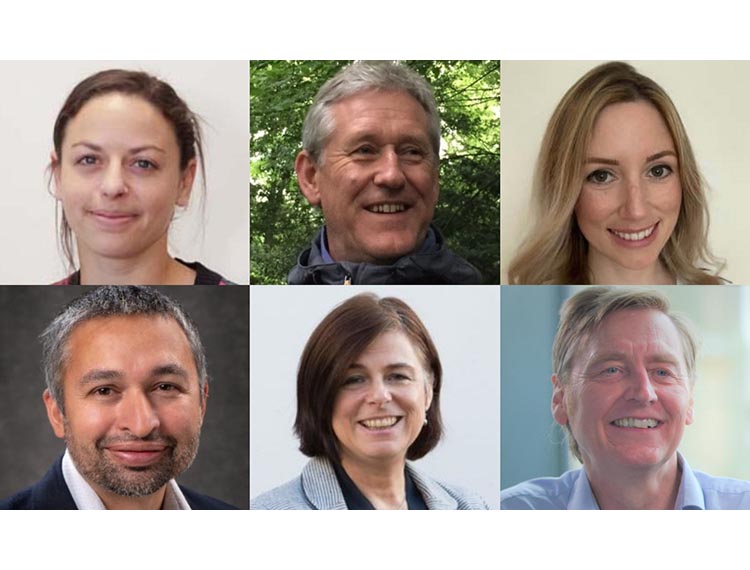Universities and business collaborate on low carbon innovation with Eco-I North West

Over 80 businesses are collaborating with six leading universities in a first-of-its-kind research and development programme for low carbon innovation.
Eco-I North West is a £14 million initiative offering SMEs in any sector the opportunity to collaborate with and access the extensive knowledge base, cutting-edge research facilities, and skills of six of the region’s leading universities – Lancaster, Central Lancashire, Cumbria, Liverpool, Liverpool John Moores and Manchester Metropolitan.
The programme, part funded by the European Regional Development Fund, will work with more than 300 small and medium sized enterprises (SMEs) across the region over the next two years, supporting the development of 135 new innovative solutions which will save 3,850 tonnes of CO2. This is support for businesses to build back better”, enabling R&D, and building networks to drive innovation, which is good for business and better for the environment.
Among the 80+ businesses already signed up to Eco-I NW are: Fibrestar Drums, based in Stockport, a manufacturer of fibre drums; Biotech Services, based in Sandbach, a manufacturer exploring the use of extracted organic production waste to create new products such as fabrics, regenerative medicine, biodegradable packaging and batteries; Designed Network Solutions, based in Northwich, a specialist in water supply challenges, developing network designs and software solutions; Enviroo, based in Manchester and building its first recycling plant in Ellesmere Port, Cheshire, a specialist recycling plastic bottles into the raw material for new food-grade packaging; National Air Quality Testing Services (NAQTS), based in Lancaster, an expert in air quality monitoring technology and testing services; REPIC, based in Bury, a provider of waste electrical and electronic equipment (WEEE) producer-responsibility compliance solutions; Barker and Bland, based in Penrith, a leading provider of peatland restoration services; Kerax, based in Chorley, a wax manufacturer innovating with hydrogenated vegetable waxes and solutions; CO2 Extraction, based in Morecambe, specialists in the extraction of high value bio-active compounds and oils from botanicals; Stopford Projects, based in Ellesmere Port, an international energy and environment consultancy developing a process which enables sustainable waste management and low-carbon energy generation; and Silverwoods Waste Management, based in Altham, Lancashire, an industrial waste recycling specialist, is researching the sequestration and capture of carbon within agricultural soils.
Some of these Inspirational stories of will be showcased at a free-to-access virtual summit, Disruption, Innovation, Transformation. Climate Change: It’s Now or Never, on Wednesday, October 20.
The two-hour webinar, running from 10am-12pm, will include keynote speaker Duncan Pollard, former VP for Sustainability at Nestle and Director of Conservation Practice & Policy at WWF, who will share his expertise on how to integrate, engage, and operationalise sustainable practice in business.
Delegates will then be invited to participate in three themed breakout sessions:
- Nature-based solutions, hosted by Helen Wilkinson from Lancaster University Management School, will hear from Barker and Bland about its innovative work with the University of Cumbria on peatlands, and Biotech Services, which is working with Lancaster University to research how biomaterials can be used for novel biotechnological applications.
- Built Environment, hosted by the University of Liverpool and Liverpool John Moores University (LJMU), will hear from Dr Ariel Edesess, a low carbon technology researcher at LJMU who studies practical ways businesses can implement climate change measures, and Dr Steffen Heinig, Senior Lecturer at LJMU with an expertise in real estate management and investment. Meanwhile, there will be a focus on the potential for 3D printing as a sustainability disrupter in the construction and civil engineering sector.
- Circular Economy, will hear from Dr Yagya Regmi, a research fellow at the Manchester Fuel Cell Innovation Centre, who is focused on solutions to decarbonise the energy sector, Dr Rhiannon Hunt, Circular Economy Manager at Manchester Metropolitan University, working on a series of innovative projects to reduce and reuse waste, and Professor Karl Williams, Director of the Centre for Waste and Resource Management at the University of Central Lancashire, researching novel solutions to better use resources to mitigate carbon impacts.
Businesses will also learn about the funding opportunities and innovation support to enable them to pilot, prototype and demonstrate new technologies, as well as opportunities for leadership development, workshops, and networking.
Speaking ahead of the event, Duncan Pollard said:
“The business community has the power to influence the effects of climate change, through its operations, supply chains, and offering more sustainable choices to customers. But for positive change we must disrupt and challenge the ‘business as usual’ mind set.
“Sustainability must be at the heart of the post-Covid recovery, not just an add-on. Any business that doesn’t heed the sustainability concerns of staff, customers and investors risks being left behind.
“SMEs are the lifeblood of our economy and offer something very special to help deliver solutions to tackle the massive challenge of climate change. Without the scale or complexity of large corporations they can move quickly to try new things and are efficient in the way in which they use resources.”
“With more than 560,000* SMEs operating in the North West, now is the time for this crucial collective to rise up and embrace the opportunity.”
The event will be chaired by Prof Jess Davies, Director of the Centre for Global Eco-Innovation at Lancaster University said:
“This virtual summit will be the first time all the key partners involved in Eco-I NW have been able to come together to ask the difficult questions about how we can approach key global challenges such as water supply and quality, waste, energy, resource efficiency, natural capital, air quality, and food security.
“Eco-I NW is the first project of its kind to open up such a huge academic regional resource to businesses and offers the opportunity for the North West to take the lead and benefit from the transition to a low carbon economy.
“I would encourage leaders of small and medium sized enterprises in the North West to sign up to the event and come along to understand how Eco-I NW could help them, and the planet.”











Responses